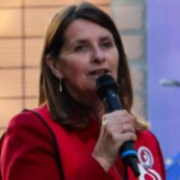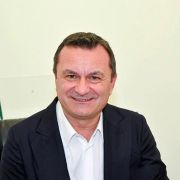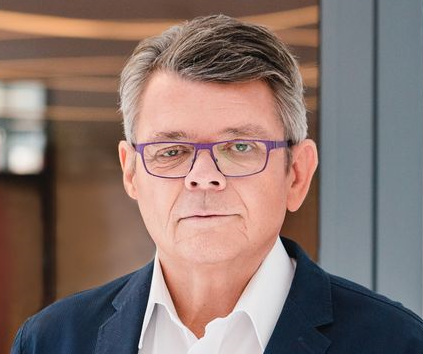The ETUC was set up in 1973 and now comprises 94 national trade union confederations in 42 countries, plus 10 European trade union federations.
Congress, Executive & Steering Committee
Congress determines the organisation's general policy. It takes place every four years and is attended by delegates from national confederations and European trade union federations. It elects the members of the Executive Committee, the President, the General Secretary, the two Deputy General Secretaries and the three Confederal Secretaries.
The Executive Committee is made up of representatives of the ETUC's member organisations, proportional to their membership. It meets four times a year and can adopt joint positions and agree on actions in support of its demands. The Executive Committee also has the power to decide on the mandate and composition of the delegations that negotiate with the European employers' organisations.
The Steering Committee decides on measures to implement the policies adopted by the Executive Committee. It meets eight times a year.
Leadership Team & Staff
The elected leadership team, or ‘Secretariat’, manages the ETUC's day-to-day activities. It is responsible for relations with the European institutions and employers' organisations. It suggests and plans European trade union actions and manages ETUC staff (Staff List) and their activities.
Pepe Àlvarez - ETUC Vice President (General Secretary, UGT, Spain)
Čedanka Andrić - ETUC Vice President (President, NEZAVISNOST, Serbia)
Josef Středula - ETUC Vice President (President, CMKOS, Czech Republic)
Petra Bolster-Damen - ETUC Vice President (International Secretary, FNV, The Netherlands)
Jarkko Eloranta - ETUC Vice President (President, SAK, Finland)
Livia Spera - ETUC Vice President (General Secretary, EFT)
Member Organisations
The ETUC represents all workers at European level.
National trade union confederations
The ETUC comprises 94 national organisations from 42 countries.
European Trade Union Federations
Ten European trade union federations are affiliated to the ETUC. They represent workers in different industrial sectors, ranging from journalism and manufacturing to public services and the police. Trade union federations are responsible for European social dialogue at sectoral level.
Interest Groups
The ETUC has set up a number of special structures to represent the interests of certain groups of workers. These bodies are closely involved in the ETUC's activities.
Coordination Committee of Interregional Trade Union Councils (IRTUCs)
The first Interregional Trade Union Council was founded in 1976. IRTUCs foster cross-border cooperation between trade unions in neighbouring countries, with the aim of defending workers' shared interests.
Women's Committee
The ETUC Women’s Committee consists of representatives from all ETUC affiliates and all organisations with observer status. Its work focuses on gender equality and it is represented both at Congress and within the Executive Committee.
Youth Committee
The ETUC Youth Committee was set up to deal with the specific problems facing young workers. Its work is becoming ever more important due to the dramatic rise in unemployment and job insecurity among young people in Europe. The Youth Committee has its own structure and constitution.
European Federation of Retired and Older People (FERPA)
FERPA is the most representative union of retired and older people in Europe today. Its activities focus on improving social protection, especially pensions and healthcare, and fighting social exclusion and poverty. www.ferpa.org
EUROCADRES
The Council of European Managerial and Professional Staff (EUROCADRES) represents such workers in all branches of industry, the public and private sectors and government departments. EUROCADRES takes action on all issues affecting professional and managerial staff (employment, freedom of movement, equal opportunities, and many more). www.eurocadres.eu
European Works Councils (EWCs)
More than 1,300 European Works Councils have been set up in cross-border companies across the EU, representing thousands of workers, and most of them are active today. EWCs should be established in firms with at least 1,000 workers, where a minimum of 150 are employed in two Member States. EU law guarantees employees the right to information and consultation on company decisions at European level.
The ETUC coordinates the EWCs across Europe, and organises an annual conference of EWC members.
Database on EWCs: www.ewcdb.eu
The European Trade Union Institute (ETUI)
The European Trade Union Institute (ETUI) is the independent research and training centre of the ETUC. www.etui.org







